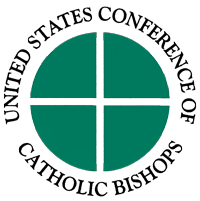Year of St. Joseph
Pope Francis proclaims “Year of St. Joseph”
With the Apostolic Letter “Patris corde” (“With a Father’s Heart”), Pope Francis recalls the 150th anniversary of the declaration of Saint Joseph as Patron of the Universal Church. To mark the occasion, the Holy Father has proclaimed a “Year of Saint Joseph” from today, December 8th, 2020 to December 8th, 2021
Click Here to read the full article from Vatican News!
APOSTOLIC LETTER
PATRIS CORDE
OF THE HOLY FATHER
FRANCISON THE 150th ANNIVERSARY
OF THE PROCLAMATION OF SAINT JOSEPH
AS PATRON OF THE UNIVERSAL CHURCH
WITH A FATHER’S HEART: that is how Joseph loved Jesus, whom all four Gospels refer to as “the son of Joseph”.[1]
Matthew and Luke, the two Evangelists who speak most of Joseph, tell us very little, yet enough for us to appreciate what sort of father he was, and the mission entrusted to him by God’s providence…
Click Here to read the full letter.
Church grants plenary indulgence for year of St. Joseph
Conditions for the plenary indulgence
The plenary indulgence is granted to the faithful under the usual conditions (sacramental confession, Eucharistic Communion, and prayer for the Pope’s intentions) to Christians who, with a spirit detached from any sin, participate in the Year of St. Joseph on these occasions and manners indicated by the Apostolic Penitentiary:
– The plenary indulgence is granted to those who will meditate for at least 30 minutes on the Lord’s Prayer, or take part in a Spiritual Retreat of at least one day that includes a meditation on St. Joseph. “St. Joseph, an authentic man of faith, invites us”, the decree reads, “to rediscover our filial relationship with the Father, to renew fidelity to prayer, to listen and correspond with profound discernment to God’s will.”
– The indulgence can also be obtained by those who, following St. Joseph’s example, will perform a spiritual or corporal work of mercy. St. Joseph “encourages us to rediscover the value of silence, prudence and loyalty in carrying out our duties,” the decree notes.
– The recitation of the Holy Rosary in families and among engaged couples is another way of obtaining indulgences, in order that “all Christian families may be stimulated to recreate the same atmosphere of intimate communion, love and prayer that was in the Holy Family.”
– Everyone who entrusts their daily activity to the protection of St. Joseph, and every faithful who invokes the intercession of St. Joseph so that those seeking work can find dignifying work can also obtain the plenary indulgence. On 1 May 1955, Pope Pius XII instituted the feast of St. Joseph “with the intent that the dignity of work be recognized by all, and that it inspires social life and laws, based on the fair distribution of rights and duties.”
– The plenary indulgence is also granted to the faithful who will recite the Litany to St. Joseph (for the Latin tradition), or the Akathistos to St. Joseph (for the Byzantine tradition), or any other prayer to St. Joseph proper to the other liturgical traditions, for the persecuted Church ad intra and ad extra, and for the relief of all Christians suffering all forms of persecution. Because, the decree notes, “the flight of the Holy Family to Egypt shows us that God is there where man is in danger, where man suffers, where he runs away, where he experiences rejection and abandonment.”







